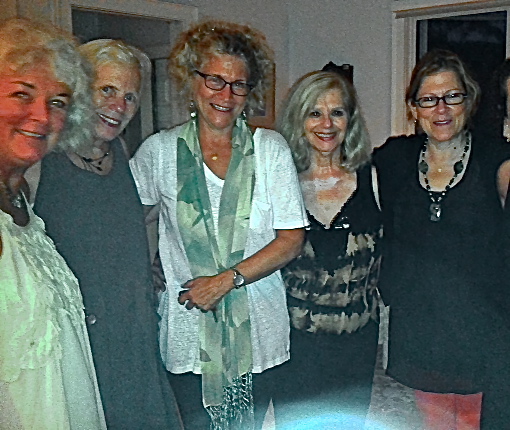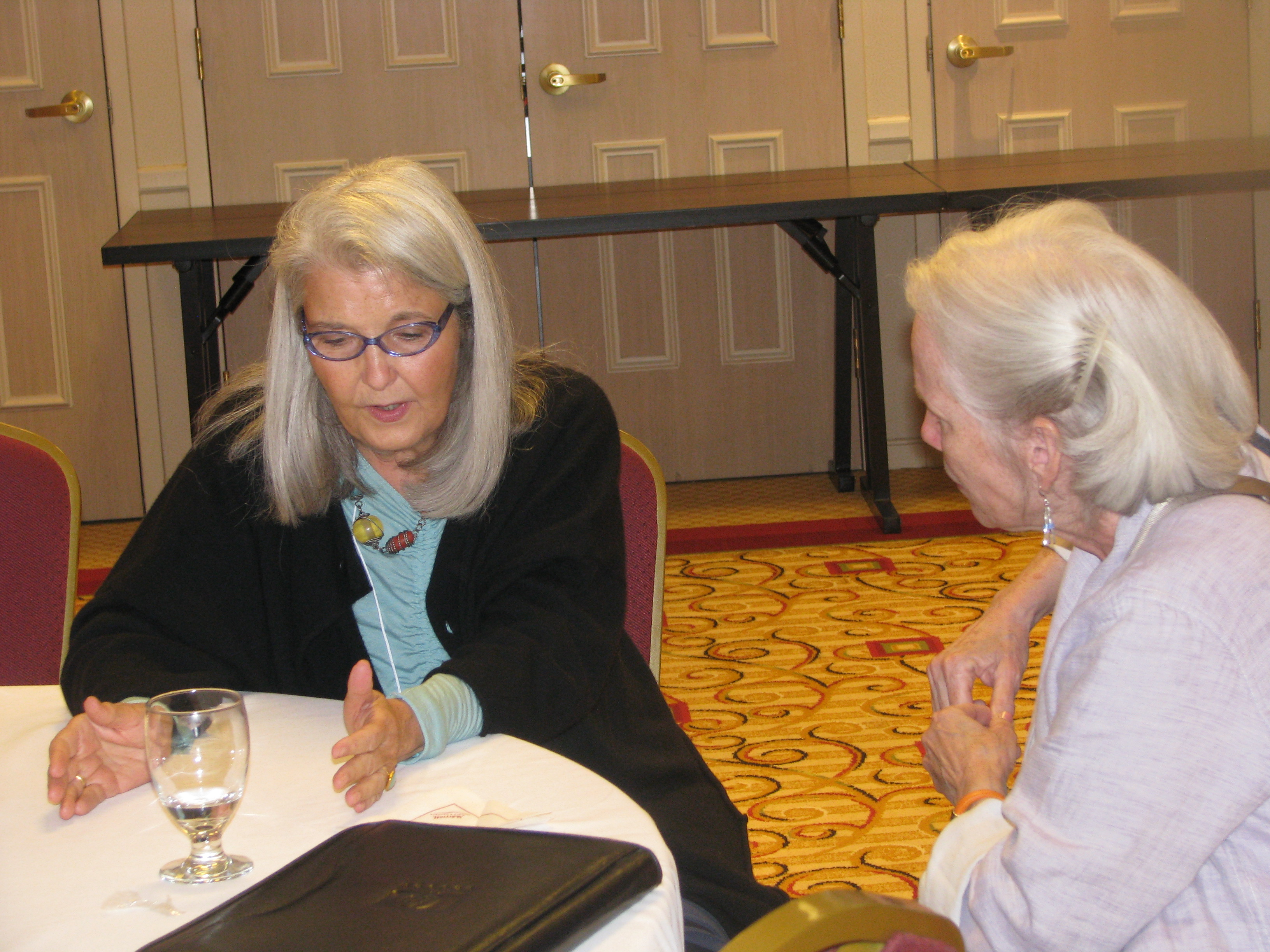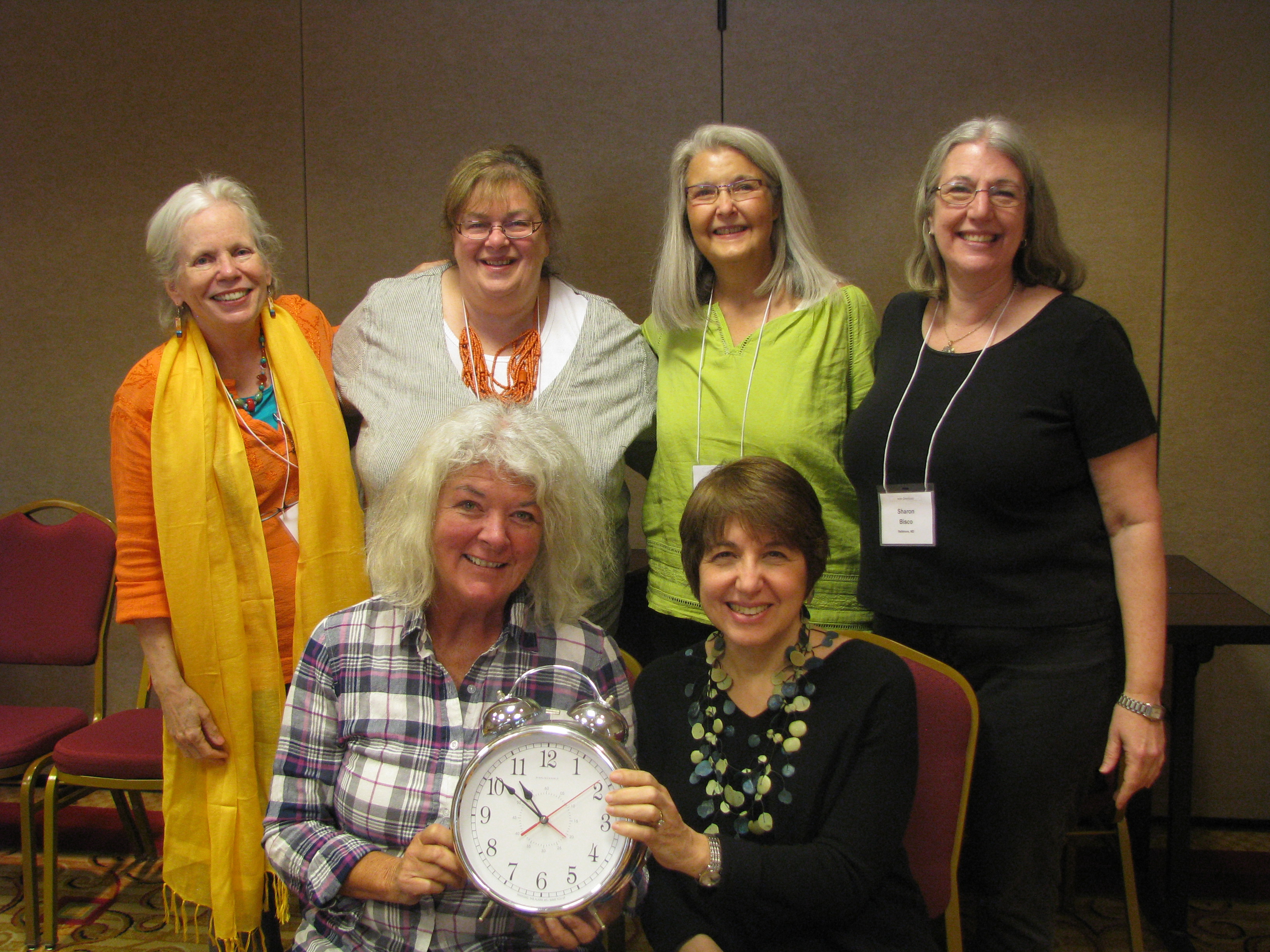In my most recent entry, I described what happens at an average New Directions weekend. There is one group that participates in the New Directions weekends that follows a different schedule. For the past fourteen years, New Directions has offered alumni groups for participants who have completed the program but desire to come back to work on on-going writing projects. Members of the Alumni Group meet four times over the weekend, when others are in the three two-pager meetings, and again on Sunday mornings. For the Saturday morning workshops, Alumni Group participants mix in with other New Directions participants.
Members of the Alumni Group commit to attend at least two of the three weekends each year. The productivity of this consistency and commitment for working on long term projects can be seen in the accomplishment of the group that included Sheila Felberbaum, Linda Sherby, and Sylvia Flescher and was led by Sharon Alperowiz, Nan Heneson and Kathie Hepler. During the years they worked together (2009 – 2012) Sheila wrote an articled entitled, “Mourning and Creativity: Finding the Write Words” that is currently in press in the journal Psychoanalytic Social Work. She also completed the play “Trauma Ties”, which she has since performed in California, Florida and New York. Linda completed a book, Love and Loss in Life and in Treatment, published by Routledge in 2013, chronicling the emotional experiences of being an analyst while struggling with the loss of her husband. Linda continues to write on topics related related to the interaction between patient and therapist in her regular blog, Inside/Outside. Sylvia worked on memoir pieces and on an article entitled “Googling for Ghosts: A Meditation on Writer’s Block, Mourning and the Holocaust” that was published in Psychoanalytic Review in January, 2013. In this work, Sylvia describes her mother being

honored at Yad Vashem and how this ceremony helped unlock Sylvia’s writers block. Of their work together, Sheila reports that “Not only did we have the incredible support and intellectual stimulation of our talented co-leaders, but we also helped each other via email with revisions between meetings.” Sylvia adds, “We were committed to one another and invested in our mutual development as writers. We all grew so much. I do miss our very special group!”
At the most recent weekend (Home, May 2013), I had the opportunity to sit in a meeting of the current Alumni Group. Joanie Lieberman, a psychoanalyst, and Deirdre Callanan, a writing teacher, run this group. Members of the group include Mary Cummins, who is working on a collection about her parenting years and Elizabeth Trawick whose collection of pieces about life in southern Alabama captures both the peculiarities and dignity of her neighbors. Irene Landsman’s memoir is a reflection on moral development during her 1960s adolescence. Sharon Bisco’s fantasy novel is a philosophical consideration of personal growth, while Devra Adelman is working on several different projects that include a picture book and a number of professional pieces.
What was clear watching the interactions of the group was that the comfort participants felt with one another and their ways of working together allowed for each to ask for the help she needed. When Sharon’s turn to discuss her piece came up, she asked for general reaction to the new section rather than line editing. This led to a discussion of the dreamlike rhythms in Sharon’s piece that gave it a poetic feel, which in turn gave rise to an examination of her description of a “sea of olive trees”.
“You’re not done with description here,” Deirdre told her. “You haven’t worn that out yet.”
Deirdre’s comment was followed by a careful discussion of the continuity of form, style and word choice in a particular passage and the question of whether writing down the rules of the story world, what characters can and cannot do, when and for whom, would help Sharon to organize the complexities of the piece.
At Irene’s turn, she read a new passage from her memoir, which prompted a discussion of varying the structure of the sentences. Irene raised the question of whether a particular character came across as a caricature, which prompted the suggestion that the character herself was self-caricaturing, not only of herself but of the era. Elizabeth then described how Irene’s way of writing vignettes without foregrounding concerns about structure helped her reconsider how to approach the vignettes that made up her own piece. Deirdre responded by commenting, “It’s the tentativeness of the truth that is gripping. The search that will never be complete keeps it moving.”
There are many reasons that a long-term writing group can be at the heart of success for writers. It was evident watching this group that their thoughtful and serious discussions offered a variety of possible supports that participants could make use of according to their own needs and predispositions. They offered frank and constructive feedback in an atmosphere of strong, positive support. They were clearly learning from one another and refining their own voices through explaining to one another what they were working to achieve in their writing of particular passages or uses of a given structure. And although they did not say it, I suspect that the respect each has for the opinion of the others is a strong motivation in what can be one of the hardest challenges of being a writer – showing up with new writing.



I need to be in an alumna group. I graduated many years ago. Looking forward to the weekend. Kris